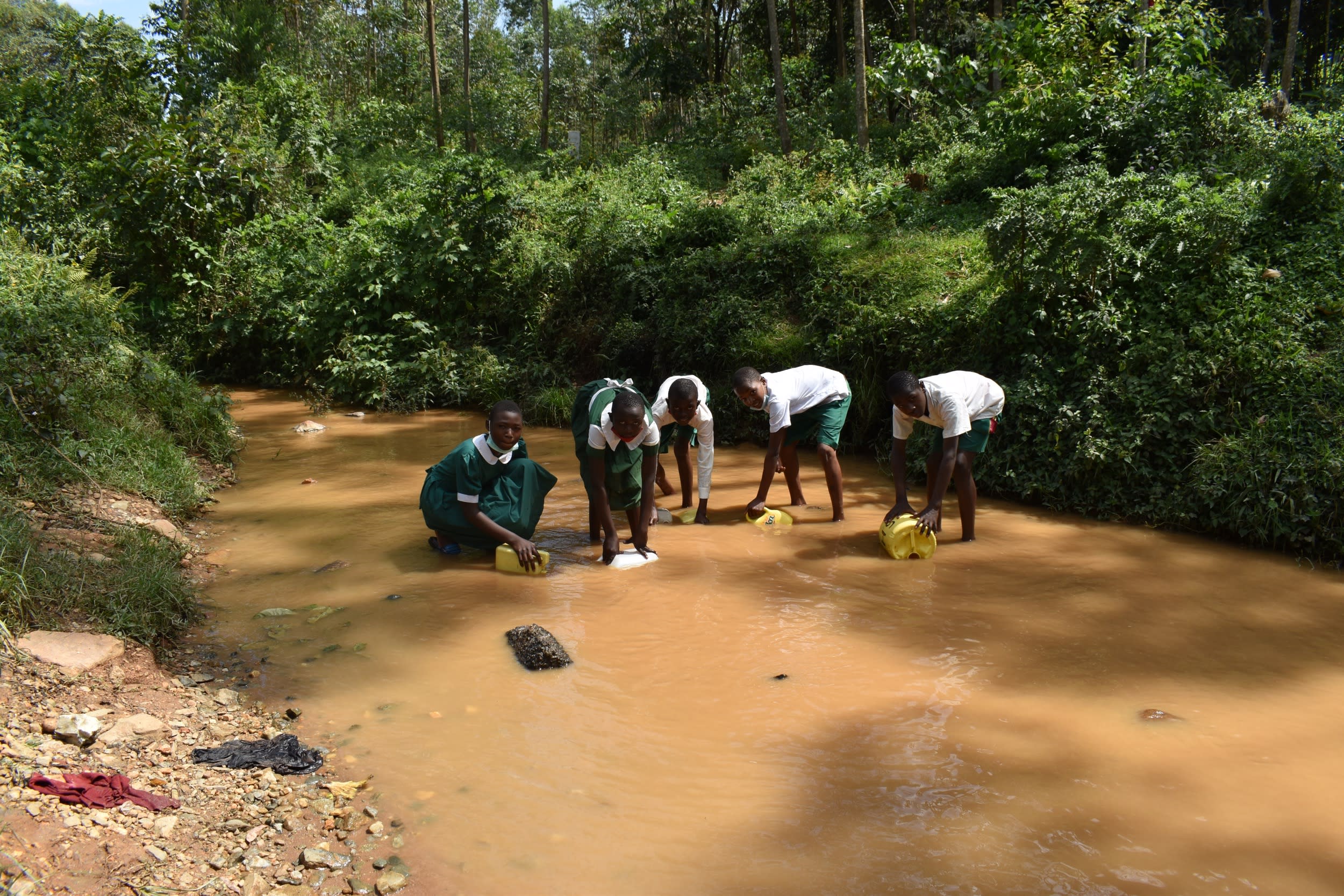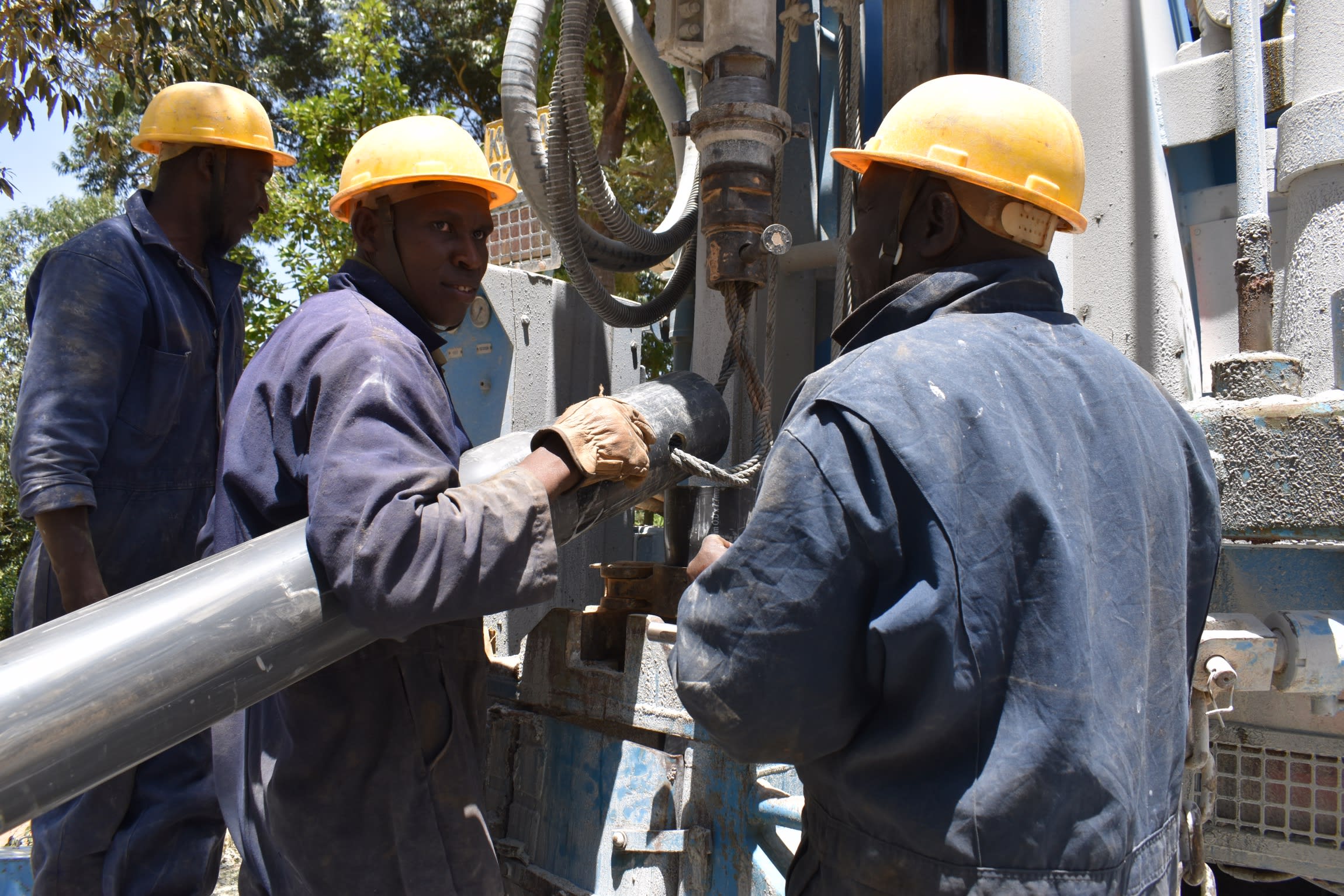Shaviringa's 666 students can't rely on the school's small rain tank to provide enough water even in the wet season. It is far too small for the school's high population and empties almost as soon as it rains. This sends students scrambling for water from the nearby river, which leads to devastating health consequences. Students are regularly hospitalized after drinking this river water.

"[The] water crisis in the school is really affecting me negatively," said 14-year-old student, Eugine. "The path leading to the water source is very steep, which is very dangerous, especially during [the] rainy season, which has led to many of the learners [breaking] their legs."
Gladys Shilosio, a teacher at the school, pointed out that it's not only the big things like health and hygiene that are affected. The lack of water costs students another valuable resource: time.
"Water challenges in the school have brought a lot of confusion not only [for] the learners, but also the teachers," Gladys explained. "This is because when the learners are sent to fetch water, [it] interferes with the normal lessons."
The learners have to come to school very early, miss class during the day, and leave school late, which leaves little time for study or play. "Most of the time, I have to concentrate on fetching water to be used in school instead of concentrating on my studies, which is tiresome," Eugene said.
And even with all this time spent fetching water, it is never enough for the school's needs. The school's buildings and latrines are hardly ever cleaned, which only adds to the health problems the students are experiencing. A reliable, safe water source and a few more latrines will go a long way in improving these children's lives.
What We Can Do:
New Well
We conducted a hydrogeological survey at this school and the results indicated the water table beneath it is an ideal candidate for a borehole well. Due to a borehole well's unique ability to tap into a safe, year-round water column, it will be poised to serve all of the water needs for this school's large population, even through the dry months.
The school will help collect the needed construction materials such as sand, rocks, and water for mixing cement. They will also provide housing and meals for the work team, in addition to providing local laborers. We will complement their materials by providing an expert team of artisans and drilling professionals, tools, hardware, and the hand-pump. Once finished, water from the well will then be used by the school’s students and staff for drinking, handwashing, cooking, cleaning, and much more.
Handwashing Stations
There is currently nowhere for students to wash their hands after using the latrines or before eating lunch, let alone the water to do so.
The student health club will oversee the two new handwashing stations we will provide, and make sure they are kept clean and in working condition. The club leaders will fill the handwashing stations with water daily and make sure they are always supplied with a cleaning agent such as soap or ash.
VIP Latrines
We will construct two triple-door latrine blocks using local materials that the school will help gather. Three doors will serve the girls and three doors will serve the boys. All of these new latrines will have cement floors that are designed to be easy to use and to clean. And with a borehole right on school property, there should be enough water to keep them clean.
Training on Health, Hygiene, COVID-19, and More
We will hold a one-day intensive training session with students, teachers, and parents. This training will cover a wide range of topics including COVID-19 symptoms, transmission routes, and prevention; personal and environmental hygiene; and the operation and maintenance of the borehole, latrines, and handwashing stations. There will be a special emphasis on handwashing.
Our team of facilitators will use a variety of methods to train, including participatory hygiene and sanitation transformation, and asset-based community development. We will initiate a student health club, which will prepare students to lead other pupils into healthy habits at school and at home. We will also lead lectures, group discussions, and provide illustrative handouts to teach health topics and ways to promote good hygiene practices within the school including handwashing and water treatment. We will then conduct a series of follow-up trainings before transitioning to our regularly scheduled support visits throughout the year.
We and the school strongly believe that all of these components will work together to improve standards at this school, which will help lead to better student academic performance and will help unlock the opportunity for these students to live better, healthier lives.

 Borehole Well and Hand Pump
Borehole Well and Hand Pump
 Rehabilitation Project
Rehabilitation Project




































